Shenzhen Guangyang Zhongkang Technology Co., Ltd. |
|
Professional Neuro Technology Photodynamic PDT Therapy Machine Brain Photobiomodulation Helmet
What is Photobiomodulation Therapy (PBMT)?
Photobiomodulation Therapy (PBMT) is the best technical term for
Low Level Laser Therapy (LLLT).
It is a light therapy using lasers or LEDs to improve tissue
repair, reduce pain and inflammation wherever the beam is
applied.Usually applied by a doctor, therapist or technician,
treatments take about 10 minutes and should be applied two or more
times a week.Photobiomodulation has been used for many years on
sports injuries, arthritic joints, neuropathic pain syndromes, back
and neck pain. Over 700 randomised clinical trials have been
published on Photobiomodulation, half of which are on pain.
Compared with other therapy method, like drugs, light therapy is
the most safe and no side effects way for treatment.
Light therapy was known in medical field for a long time,
especially for the red light and infrared.
All our clients feel good spirit and comfortable after using.
1.How often does a person use the helmet?
For long-term chronic diseases, such as degenerative diseases, the
recommended course of treatment is 3-6 months.
For short-term symptoms, such as concussion, migraine, depression,
etc., the recommended course of treatment is 1-3 months. According
to the severity of the patient’s symptoms, use 4-6 times a week,
1-2 times a day. At the beginning of the treatment, it is
recommended to give the patient a process of adaptation. About the
power intensity and time, you can start from 25% , 12 minutes.
Gradually increase the power intensity and time step by step. After
a adapation period, can use 75-100% intensity for 24-30 minutes.
2.How long to set the timer?
You can choose 6 minutes – 12 minutes – 18 minutes – 24 minutes –
30 minutes
3.Are your infrared LEDs near infrared?
Our model is near infrared with 810nm.
4.Why do you use a mix of red LED and infrared LED? Why are they
red?
We use 256pcs near infrared light for therapy. There are 4 pcs red
led for instruction, to show you the device is working.
Sometimes the near infrared is hardly to be seen from eyes, so the
red light just for instruction, not for therapy function.
5.Have you found that your machine is able to actually penetrate
the brain?
Yes, we have got a lot of research to prove this thoery which 810nm
light can penetrate the brian.
6.How deep have you seen your machines tested to penetrate through
the brain?
The 810nm light can penetrate our skull and works on nerve cell,
and there is Cytochrome C Oxidase inside the Mitochondria of the
cell, to promote the cell viability.
7.What frequency?
For the button model, the frequency is 40Hz, for the touch screen
model, the frequency is 1-20,000 Hz adjustable.


What is PBM Photobiomodulation?
Photobiomodulation (PBM) describes the use of red or near-infrared light to stimulate, heal, regenerate, and protect tissue that has either been injured, is degenerating, or else is at risk of dying. One of the organ systems of the human body that is most necessary to life, and whose optimum functioning is most worried about by humankind in general, is the brain.
The brain suffers from many different disorders that can be classified into three broad groupings: traumatic events (stroke, traumatic brain injury, and global ischemia), degenerative diseases (dementia, Alzheimer's and Parkinson's), and psychiatric disorders (depression, anxiety, post traumatic stress disorder). There is some evidence that all these seemingly diverse conditions can be beneficially affected by applying light to the head. There is even the possibility that PBM could be used for cognitive enhancement in normal healthy people. In this transcranial PBM (tPBM) application, near-infrared (NIR) light is often applied to the forehead because of the better penetration.

Principle:
Cytochrome C oxidase (CCO, also known as complex IV) is a specific structure in mitochondria that ACTS as a photon receptor and thus plays the PBM effect.PBM prevents respiratory inhibition (and correspondingly reduces energy storage) in stress cells by isolating nitric oxide (NO) and reversing the shift of oxygen in cytochrome C oxidase.This triggers transcription factors that alter gene expression levels.The binding of nitric oxide (NO) to copper (or heme) centers in the mitochondrial cytochrome C oxidase (CCO) inhibits cell respiration.But cytochrome C oxidase, which absorbs red or near-infrared (NIR) light, dissociates nitric oxide, restoring oxygen, increasing cellular respiration, and forming adenosine triphosphate (ATP).This triggers a cascade of intracellular reactions involving nitric oxide, reactive oxygen species (ROS), and cyclic adenosine phosphate (cAMP) that produce beneficial effects of PBM

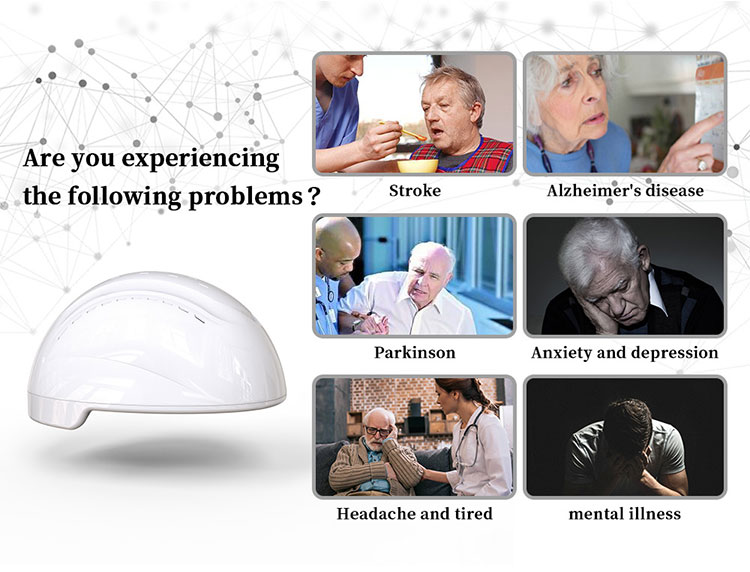


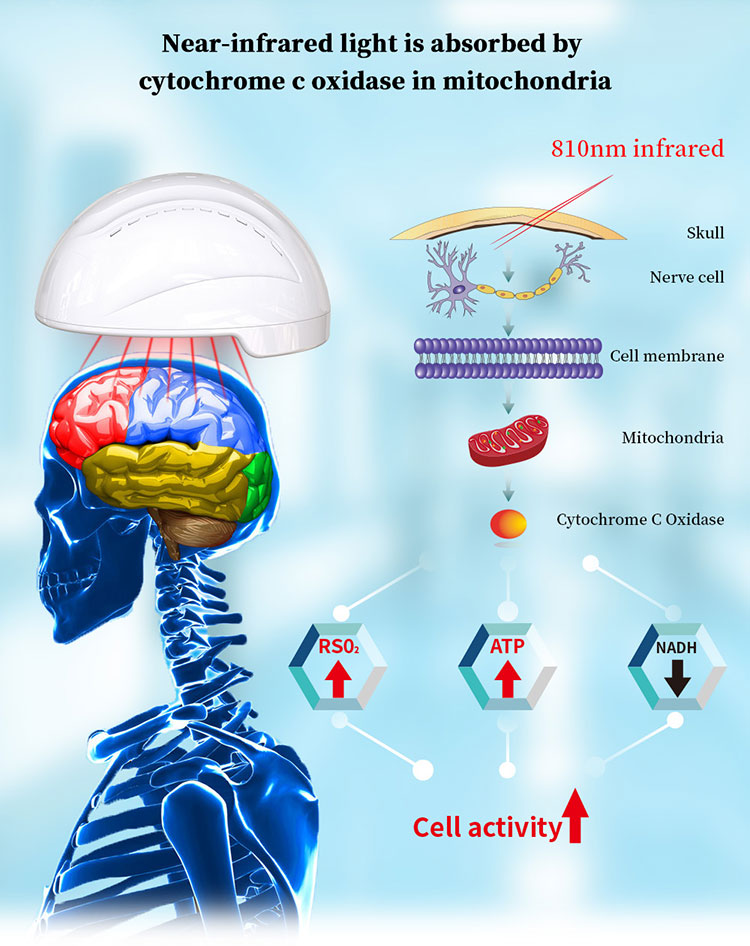
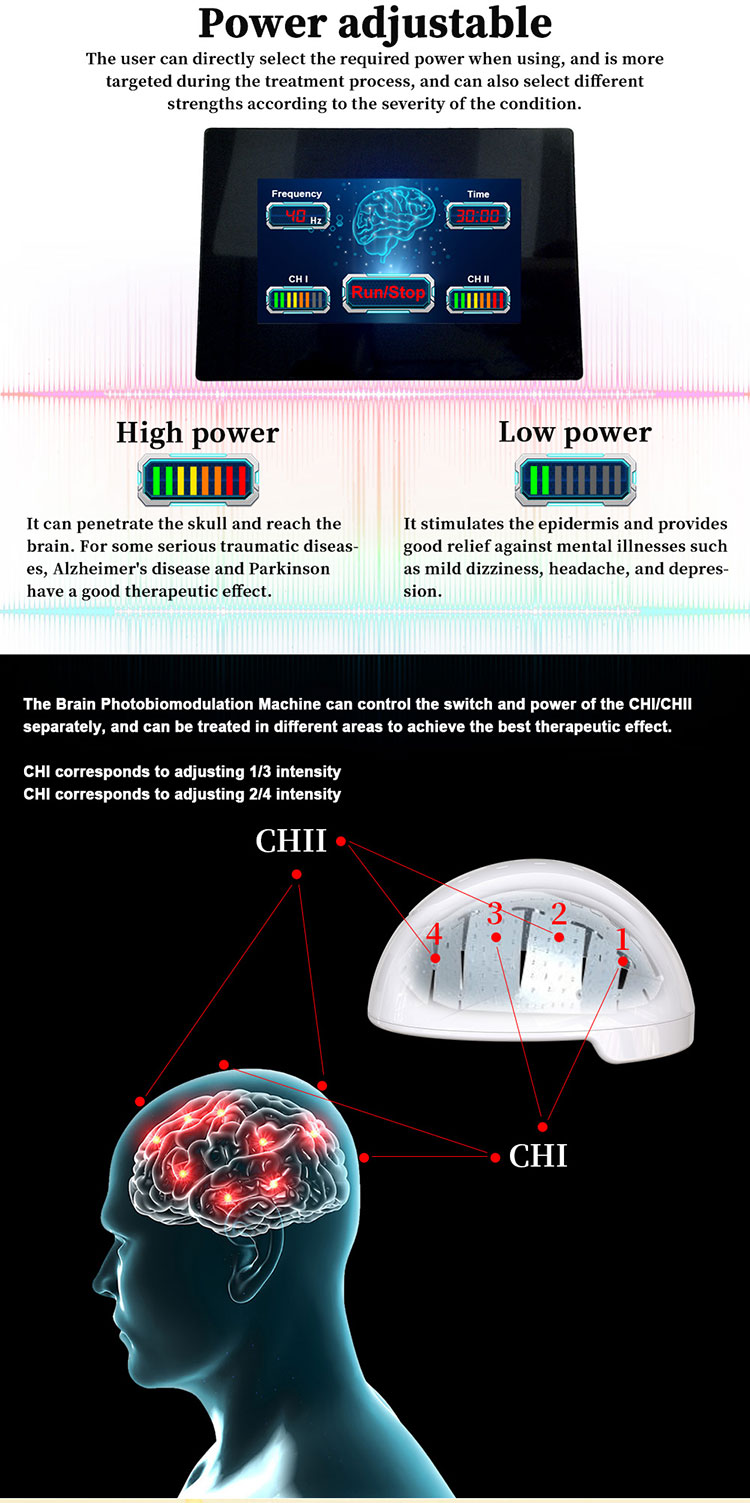
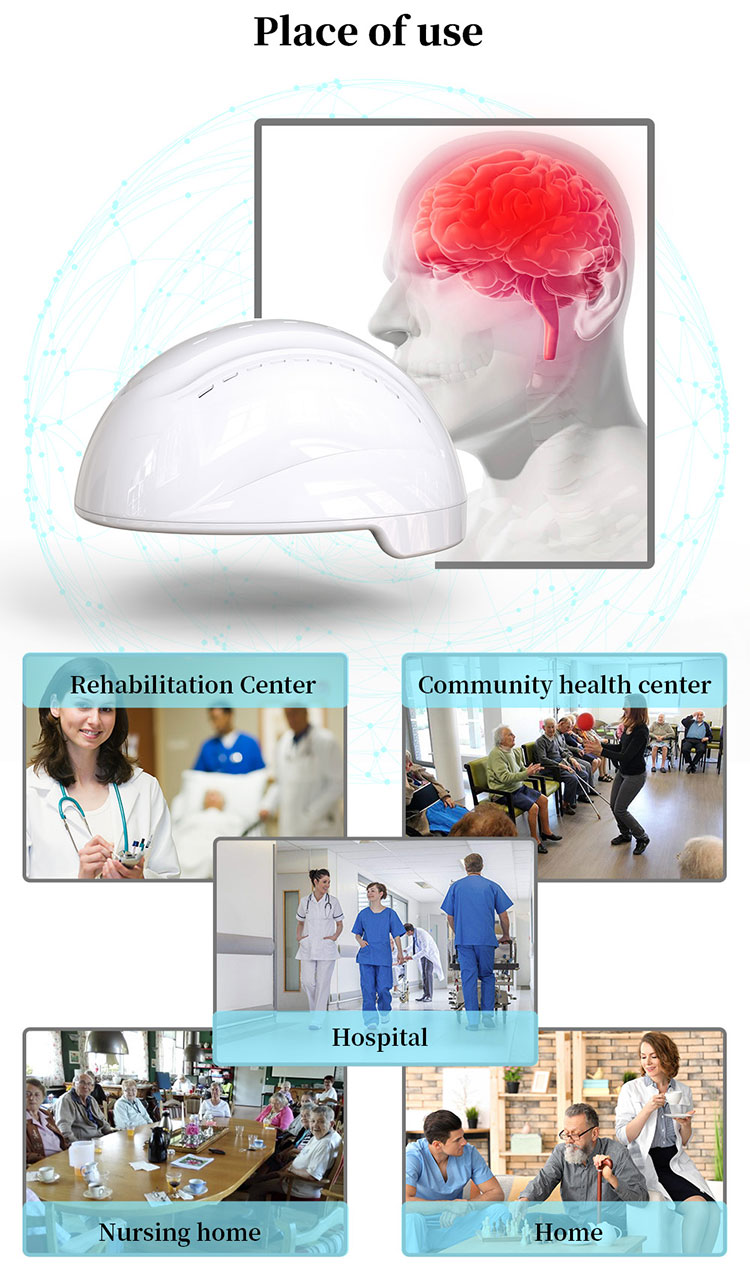

Experiment We Do
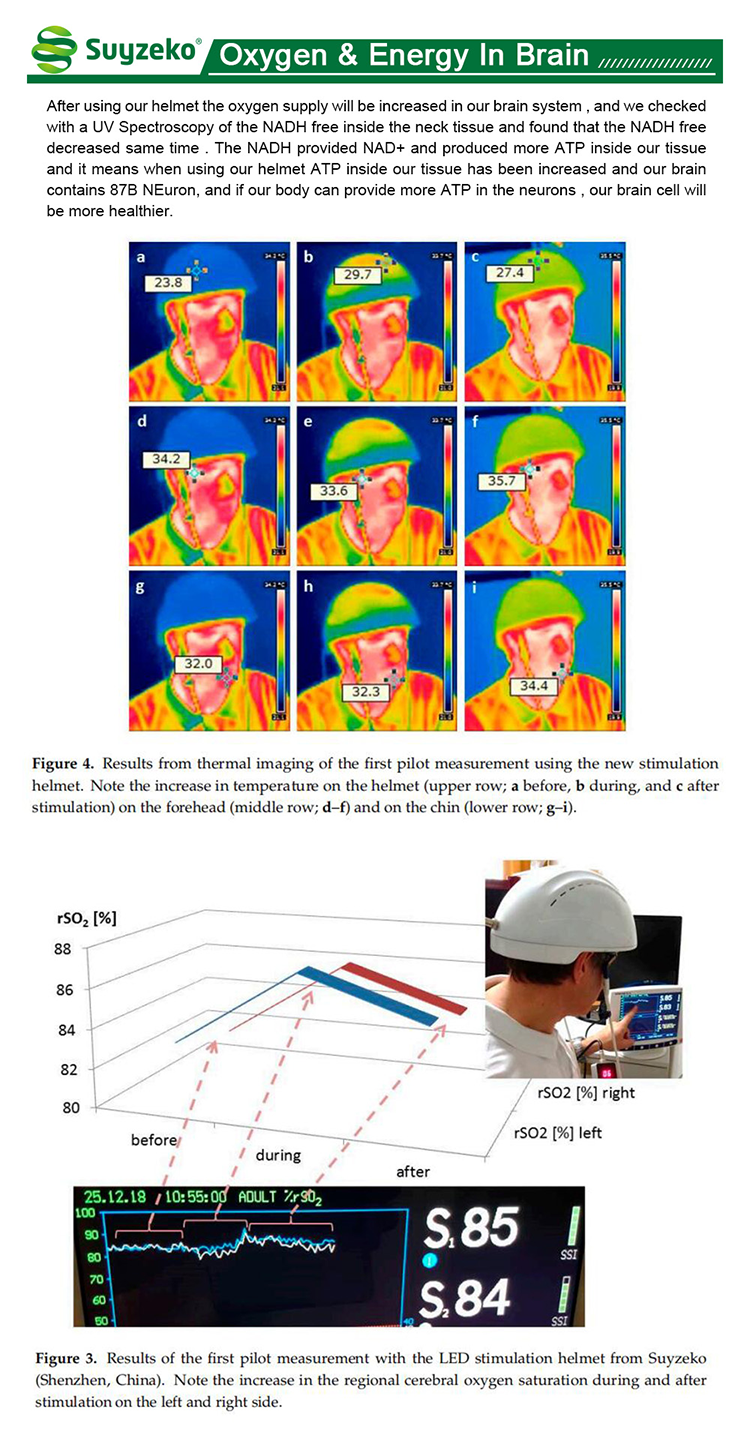
One of the experiments cooperate with the Complementary and
Integrative Laser Medicine, Biomedical Engineering in Anesthesia
and Intensive Care Medicine, Medical University.
Showed a clear response of cerebral rSO2 in relation to the our PBM
helmet stimulation.
December, 2018
One of the experiments cooperate with the German Healthcare field organization
Showed a clear response of NADH reduction, which means the increasing of ATP in relation to our PBM helmet stimulation.
May, 2019
One of the experiments conducted by Italy brain health organization
29 Italian patients underwent NIR stimulation therapy for 1-month,
tested before and after and shown good results
March, 2020
Many reports and datas, if you want more details, welcome to contact me.
Feedback from customers:


CONTACT US!
More professional introduction for your better reference !
Send your inquiry details in the below, click ‘Send’ now !
We will reply you and slove your consideration within 24 hours !